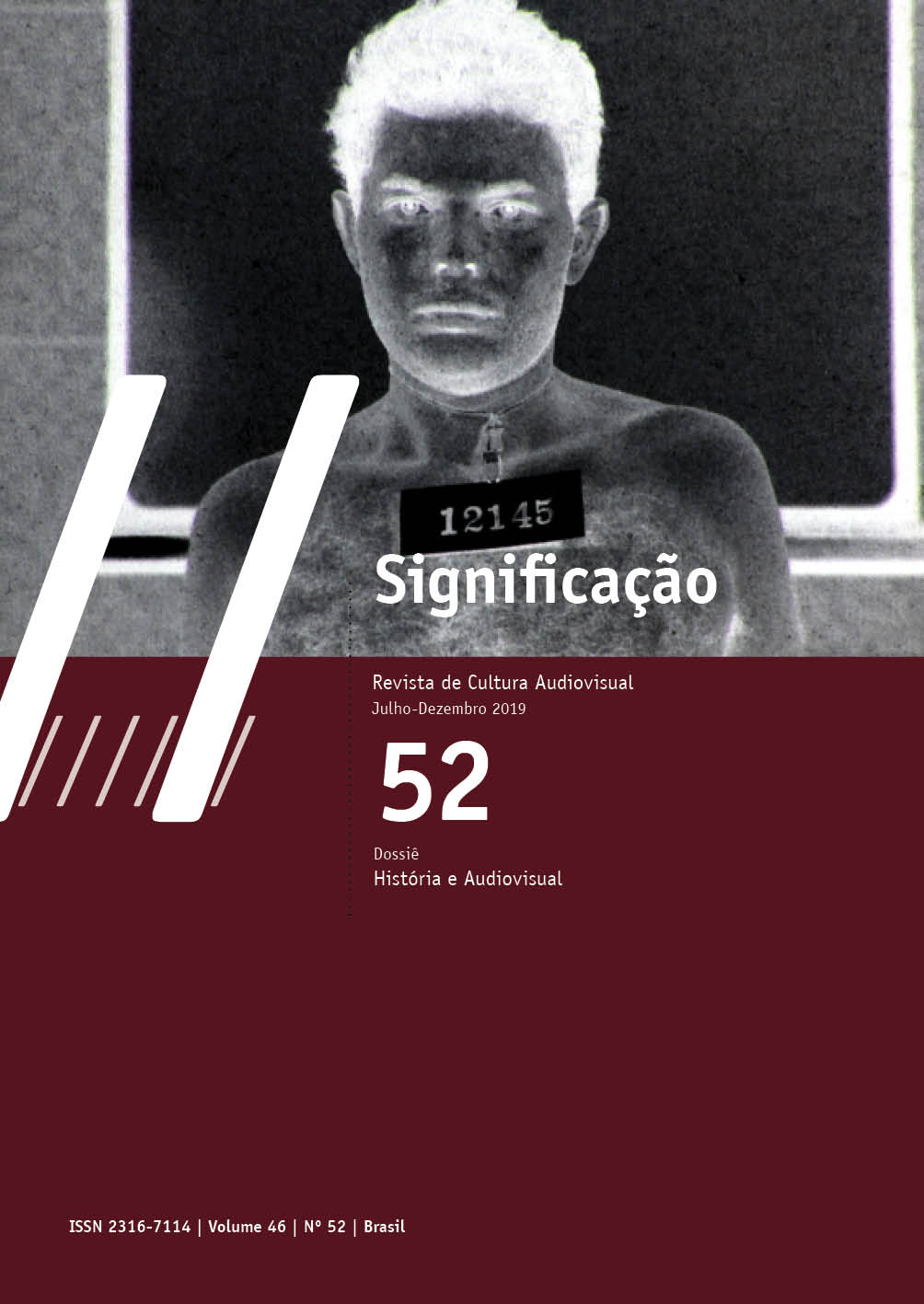Darkness, resistance and silence in Jean-Pierre Melville’s Le silence de la mer
DOI:
https://doi.org/10.11606/issn.2316-7114.sig.2019.149108Keywords:
film analysis, French cinema, resistanceAbstract
This article seeks to develop reflections on the film Le silence de la mer, directed by Jean-Pierre Melville and released in 1949. It proposes a link between aesthetics, represented by darkness, narrative, expressed in silence, and the French resistance in World War II in the adapted story of the homonymous work of Jean Bruller, to analyze how the director disrupts with a filmic pattern which had come into use in the post-war period.
Downloads
References
BAZIN, A. Bazin at work: major essays and reviews from the forties and fifties. London: Routledge, 2014.
BEJA, M. Film & literature. Harlow: Longman, 1979.
BLUESTONE, G. Novels into film. Berkeley: University of California Press, 1968.
BOISDEFFRE, P. Une histoire vivante de la littérature. Paris: LLC, 1959.
BOWLES, B. “Résistance oblige?” French Politics, Culture & Society, Oxford, v. 32, n. 1, p. 68-100, 2014.
BRODY, R. Everything is cinema: the working life of Jean-Luc Godard. New York: Henry Holt and Company, 2008.
COSTANZO, L. Literature into film: theory and practical approaches. Jefferson: McFarland, 2014.
GIRAUD, A. C. B. “Le silence de la mer” traduzido do texto para as telas: a representação da Ocupação e da Resistência. Dissertação (Mestrado em Linguística Aplicada) – Centro de Humanidades, Universidade Estadual do Ceará, Fortaleza, 2009.
HEWITT, L. Remembering the Occupation in French film: national identity in postwar Europe. New York: Springer, 2008.
LE SILENCE de la mer. Cinémathèque française, Paris, .9 nov. 2010. Disponível em: https://bit.ly/2Vm3zoP. Acesso em: 24 abr. 2019.
PALMER, T. Tales of the underworld: Jean-Pierre Melville and the 1950s French cinema. Madison: University of Wisconsin Madison Press, 2003.
PALMER, T. “An amateur of quality: postwar French cinema and Jean-Pierre Melville’s Le silence de la mer”. Journal of Film and Video, Champaign, v. 59, n. 4, p. 3-19, 2007.
ROUSSO, H. The Vichy syndrome: history and memory in France since 1944. Harvard: Harvard University Press, 1994.
SARTRE, J. P. “La République du silence”. In: SARTRE, J. P. Situations III. Paris: Gallimard, 1949.
VERCORS. Le silence de la mer. Paris: Albin Michel, 1951.
VINCENDEAU, G. Jean-Pierre Melville: an American in Paris. London: British Film Institute, 2003.
Referências audiovisuais
LE SILENCE de la mer. Jean-Pierre Melville, França, 1949.
Downloads
Published
Issue
Section
License
Copyright (c) 2019 Waldemar Dalenogare Neto

This work is licensed under a Creative Commons Attribution-NonCommercial 4.0 International License.
Authors who publish in this journal must agree with the following terms:
- Authors keep their copyrights and grant the journal first time publication rights, having their articles simultaneously licensed under the Creative Commons Attribution License, which allows sharing texts with authorship recognition and first publication on this journal for non-commercial purposes.
- Authors are allowed to make additional contracts, for a non-exclusive distribution of the article’s version published on this journal (e.g.: publishing in institutional repositories of articles or as a book chapter), with authorship recognition and first publication on this journal.
















